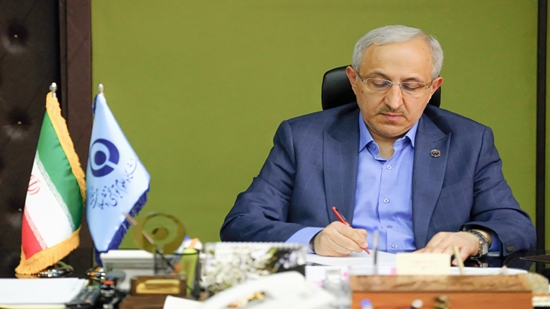Rehabilitation and Social Health: A Lasting Legacy of the Islamic Revolution in Pursuit of Justice and Scientific Advancement

Rehabilitation and Social Health: A Lasting Legacy of the Islamic Revolution in Pursuit of Justice and Scientific Advancement
On the occasion of the Islamic Revolution's Decade of Fajr, Dr. Seyyed Ali Hosseini, the Chancellor of the University of Social Welfare and Rehabilitation Sciences (USWR), issued a message emphasizing that rehabilitation and social health represent a lasting legacy of the Islamic Revolution in the pursuit of justice and scientific progress.
In his message, Dr. Hosseini stated, "Rehabilitation and social health are enduring legacies of the Islamic Revolution, embodying the principles of justice and the advancement of science."
To highlight the significance of these fields, he noted that they play a crucial role in ensuring equality and enhancing the quality of life for all citizens. The university remains committed to furthering this legacy through education, research, and community service, reinforcing its dedication to social welfare and rehabilitation.
Dr. Hosseini called upon academics, researchers, and students to contribute actively in these domains, fostering a culture of innovation and collaboration while continuing the mission of the Islamic Revolution toward a more equitable and progressive society.
With this message, the university underlines its commitment to the core values established by the revolution, reinforcing its role as a leader in social welfare and rehabilitation sciences in the country.
In the Name of God, the Most Gracious, the Most Merciful
The blessed Decade of Fajr serves as a reminder of the glory and greatness of a nation that changed the course of history with unwavering determination and resolve. This revolution not only brought freedom and independence to our beloved Iran but also laid the groundwork for unprecedented advancements in various fields, including science and knowledge.
The Islamic Revolution was not merely a political upheaval; it marked a turning point in the scientific history of the country. The emphasis on scientific reasoning, the strengthening of educational and research infrastructures, and the training of specialized human resources are among the significant achievements of this revolution. Over the years, Islamic Iran has enhanced its scientific standing in the region and globally by relying on its capable human resources and expanding universities and research centers.
USWR, as one of the offspring of the Islamic Revolution, symbolizes this scientific and development-oriented vision. With the aim of training specialists in rehabilitation, health, and social sciences, as well as improving the quality of life for community members, this university has played a crucial role in advancing scientific goals and enhancing healthcare services in the country.
The Decade of Fajr is an opportunity to review and appreciate the achievements of the Islamic Revolution in various areas, including science and technology. Over these four decades, the country’s educational and research infrastructures have been significantly strengthened, paving the way for major transformations in health, medical education, and rehabilitation. Remarkable advancements in treatment, the production of indigenous knowledge, the development of medical technologies, and research achievements all stem from the approach the Islamic Revolution has steadfastly taken towards science and knowledge.
USWR: A Commitment to Excellence in Education and Specialized Services
USWR has made significant contributions to the scientific and executive community in Iran by fulfilling its essential mission of expanding education, research, and specialized services. This is particularly evident in areas directly related to improving the quality of life for individuals with disabilities and those in need of rehabilitation services. The university stands not only as an educational institution but also as a symbol of self-belief and reliance on domestic capabilities to enhance health and social welfare in the country.
As the Chancellor of this university, I firmly believe that Iran’s scientific advancements are owed to the visionary and forward-looking perspective of the Islamic Revolution, as well as the determination of scientists, professors, and students who have tirelessly expanded the frontiers of science and technology. It is now our collective responsibility to continue this proud journey with even greater seriousness and commitment.
The Decade of Fajr serves as an opportunity to reflect on the noble values of the Islamic Revolution. By closely examining the scientific achievements and infrastructures established during this period, we can plan for a brighter future. I extend my congratulations to all faculty members, students, staff, and the larger community of the USWR during this blessed time. I hope that through our collective efforts and continuous dedication, we can take effective steps towards enhancing the health and welfare of our society.
May peace be upon you and the mercy and blessings of God.
Dr. Seyyed Ali Hosseini
Chancellor of the University of Social Welfare and Rehabilitation Sciences


نظر دهید